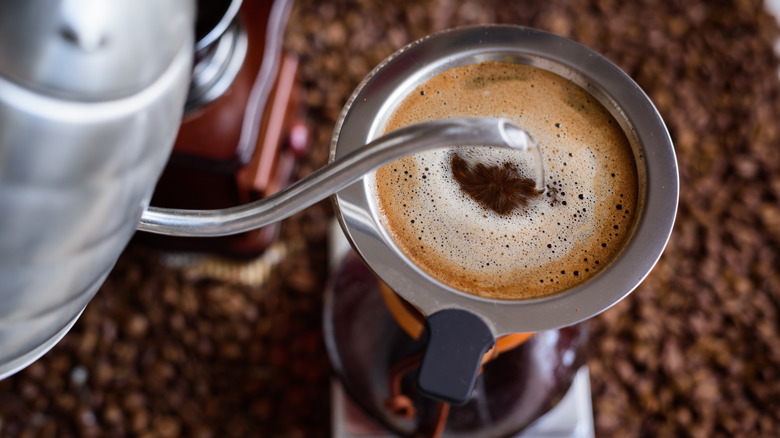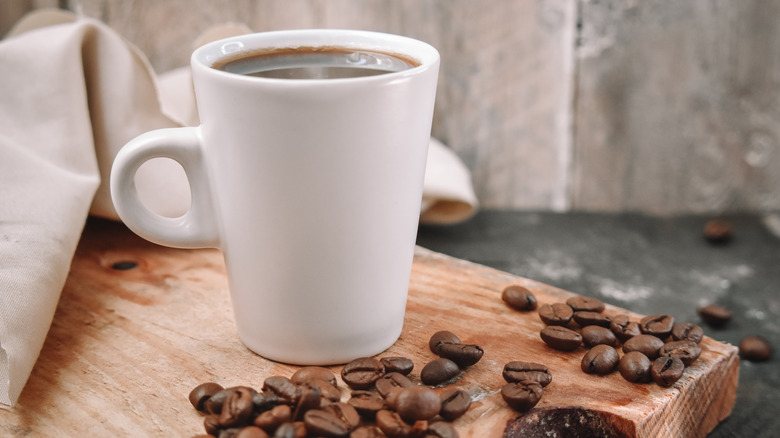What Happens When You Over-Extract Coffee
If you drink coffee not just for the caffeine-inspired alertness it gives you in the morning but also for its rich flavor, then extraction is definitely a concept you should care about. Extraction, for the uninitiated, refers to the way flavors and compounds are leached from ground coffee beans as they're exposed to water throughout the brewing process, per Coffee Affection.
It's a more complicated process than you might think, notes Perfect Daily Grind, since not only are individual flavors and compounds extracted from coffee at different times and in varying quantities during brewing, but there are also a variety of other factors which can cause the finished product — your beloved morning pot of coffee — to be either under or over-extracted. Both of these outcomes should be avoided, although for very different reasons.
The first thing to understand is that not all of the flavors and compounds which exist in ground coffee beans can be extracted via water exposure. About 30% of these sought-after compounds have the solubility to be extracted during brewing, Coffee Hunter points out. So why then is the optimal extraction percentage 18 to 22%? This is because anything under this level is considered under-extracted and anything above is over-extracted, meaning you're getting too little of the compounds you need for a balanced and flavorful cup of coffee — or too much.
How to avoid over-extracted coffee
Under-extracted coffee is typically too sour, as it lacks the full range of sweet and bitter flavors necessary to provide balance. Over-extracted coffee, by contrast, has far too much bitterness, according to Coffee Hunter. Although coffee gets much of its flavor from the caffeine, acids, carbohydrates, sugars, and lipids that are extracted during brewing, explains Perfect Daily Grind, some compounds are extracted earlier in the process, some later.
Caffeine and acids are extracted early, thus under-extracted coffees have too much of their characteristic sour and bitter flavors, notes Coffee Affection. The issues with over-extraction are more complex since they involve many other flavor compounds. Per Coffee Hunter, not only is caffeine a contributor to the bitterness associated with over-extraction, but so too are acids, carbohydrates, and sometimes even degraded sugars.
Fortunately, there are many ways to tweak the coffee-brewing process in order to avoid the pitfalls of under or over-extraction — particularly with pour-over coffee. Adjusting your brew time and the relative amounts of water and coffee used are basic hacks, observes Coffee Affection. The longer the brew time, the more chance there is for over-extraction, cautions Perfect Daily Grind. Changing the grind coarseness or water temperature can also help. Fine grinds extract compounds faster, and thus can more easily lead to over-extraction. Water temperatures, meanwhile, should optimally be in the range of 195 to 205 degrees Fahrenheit.

